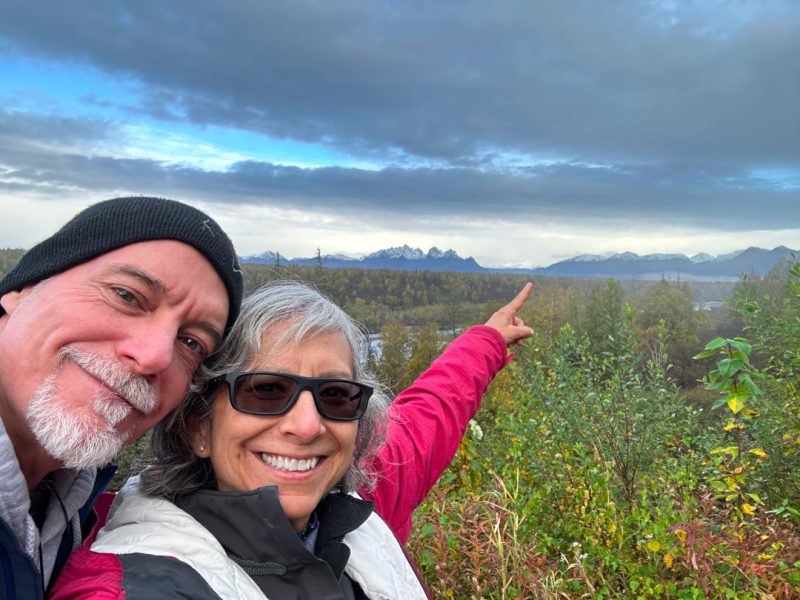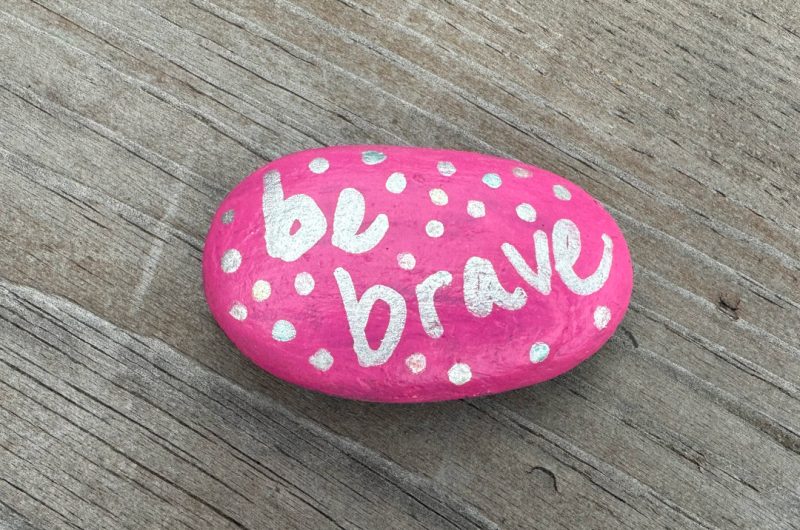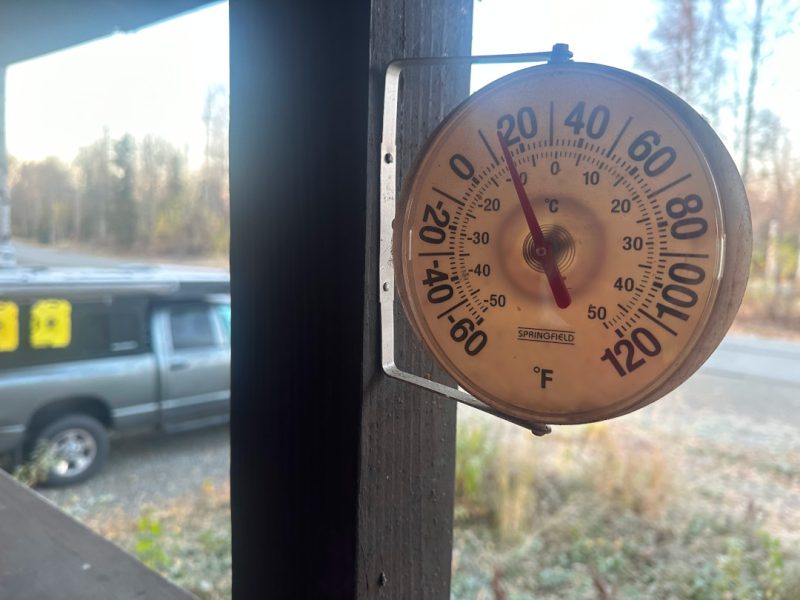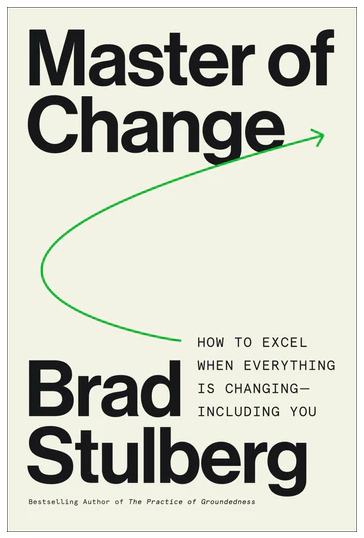Life isn’t a linear ride, but we tend to forget that essential truth when dreaming up crazy plans like spending winter in Alaska. Adapting an attitude of “rugged flexibility” is essential to make it through winter. Thankfully Brad Stulberg’s new book Master of Change can show us (and you) how to get it.
From Capable Chechakos to Rugged Flexibility All Winter Long

Earlier this year while trying to find a house for rent in Willow, I created a flyer for the local bulletin board that described Jim and I as “rugged.” Our musher friends offered to post it for us, but they giggled when I emailed the ad.
“Uh, you guys, there’s Lower 48 rugged, and there’s Alaska rugged,” she explained. “I wouldn’t want someone who is “Alaska rugged” renting my place, or sitting on my couch! I think a better word for you is “capable.”
Today we all joke about Jim and I being “the rugged couple.” But I’d like to think we are ruggedly flexible, and able to roll with everything this new experience has in store for us. Ironically, the new book Master of Change is all about developing “rugged flexibility.”
Why Master of Change is Our Go-To Alaska Survival Guide
Fall is quickly giving way to winter. By Halloween we will be down to just 8.36 hours of daylight. Temperatures are falling faster every day. And now we need every mindfulness tool available to successfully manage and thrive with this level of change. That’s why I devoured Master of Change after I received a review copy two weeks ago.
I haven’t read a book this fast since The Comfort Crisis, the catalyst for this wrong-way snowbirding chapter in our life.
Brad Stulberg launched his new bookbook at just the right time for us. In it, he reminds us of essential truths about the ever-changing nature of life. Resisting inevitable and unwanted change that happens during our lives is a bad idea. Resistance only leads to stress, disappointment, and heartache. You know what I’m talking about. All of us experienced this to some degree during 2020.
We are all Riding a Perpetual Wheel of Change. Resistance is Just a Bad Idea.
Clinging to the illusion of permanence, hoping that we won?t be struck by change, that we?ll stay more or less the same, is misguided at best and leads to suffering at worst. Life is an ongoing and oscillating series of ebbs and flows.
Developing a strong, enduring, and cohesive sense of self demands specific skills to ride the waves. Unfortunately, these skills aren?t typically taught in school, and they have been largely neglected by recent generations, who far too often have deluded themselves with ideas of control, security, and constancy?all of which work fine . . . until they don?t.
Brad Stulberg, Master of Change
So if we’re already riding that Wheel of Change, then why did I ask for more? Isn’t life exciting enough? Well, sometimes.
Early this year, the Alaska plan started brewing in my mind because I realized how comfortable we had gotten with our snowbird routine. We had become those full-timers who used to go looking for crazy boondocking adventures. I couldn’t remember the last time we went way off-grid. Checking into a resort for six months at a time, living around fun-loving neighbors, and spending time with my nearby family was just more enticing.

Answering the now or never wake-up call
This new way of life came as a relief to us, especially after all the Pandemic Era turmoil we endured. From losing my Dad and Wyatt, to constantly seeking new ways to earn a living in the age of the Amazon machine that eats small businesses like ours. A boring and predictable full-time RVing routine was just fine by us.
But then one day I woke up and realized we hadn’t had any crazy adventures for a while. You know, the ones that scare the shit out of you in the moment, but which you always laugh about later on. Aside from our distance running habit, the real off-the-beaten-path journeys we once sought out were in the rear-view mirror.
It was time for change. I wanted more out of life for me, for Jim, and for us. Thus the idea of committing to sell the RV and finally experience a true musher-style winter in Alaska was born. Thankfully he’s gone along with this crazy scheme.
Be Careful What You Ask for (and embrace an attitude of rugged flexibility ready when you do)
As the plan took shape and I realized there was no turning back, I was terrified at what I had just gotten us into. My summer was filled with sleepless nights and frayed nerves. I reached for my usual mindfulness tools like running, yoga, and meditation. They helped a little, but I needed more.
Then I heard Brad Stulberg on the Rich Roll Podcast. I knew I had just discovered what I needed to round out my arsenal of Alaska Survival Gear.
With Stulburg’s new book, I have tools that will not only help us cope with what will no doubt be the toughest season we’ve ever endured, but learn to appreciate it, to have fun with it, and to embrace the insanity of making such a choice.
By adapting what Stulberg has coined “Rugged Flexibility,” I know we will thrive through this challenging season and grow because of it.
What is the Goal of Rugged Flexibility?
The goal is not to be stable and therefore never change. Nor is the goal to sacrifice all sense of stability, passively surrendering yourself to the whims of life. Rather, the goal is to marry these qualities to cultivate what I call rugged flexibility. To be rugged is to be tough, determined, and durable. To be flexible is to consciously respond to altered circumstances or conditions, to adapt and bend easily without breaking.
Put those together and the result is a gritty endurance, an anti-fragility that not only withstands change, but thrives in its midst. This is rugged flexibility, the quality you need to become a master of change, to successfully navigate disorder and chaos and endure over the long haul.
Rugged flexibility recognizes that after disorder there is no going back to the way things were?no more order, only reorder. The goal of rugged flexibility is to get to a favorable reorder; to maintain a strong core identity, but at the same time, to adapt, evolve, and grow.
Unlike old ways of approaching change, rugged flexibility conceives of change not as an acute event that happens to you, but rather as a constant of life, a cycle in which you are an ongoing participant. Via this transformative shift, you come to view change and disorder as something you are in conversation with, an ongoing dance between you and your environment. The more skilled you become at this dance, the happier, healthier, and stronger you will be.
Master of Change, Brad Stulberg
Happiness = Reality – Expectations

There’s so much to learn from this guide to mastering change. In case you’re thinking this is just another wu-wu new agey bullshit manifesto, it’s not. Stulberg’s book has dozens of references to scientific studies. All point to hard research about acquired behaviors that help us grow and thrive as humans, and society as a whole.
I have a zillion highlights inside my copy. All remind me that however challenging life can be, there are always workaround that can help it not to suck.
Here’s a few of my nuggets of Stulburg’s wisdom that I’m holding close this winter, and always.
5 Takeaways to Master Change
Master Change, Master Your Life by Remembering:
1
The essence of one’s true nature isn’t defined by the myriad thoughts swirling around in the brain. We become better humans by consciously choosing productive behaviors that help to manage our feelings during life’s toughest times.
2
Never-ending change is the reality of life. Resisting that change is resisting life itself.
3
True happiness comes from embracing that reality, while keeping your expectations in check.
4
Don’t get too attached to your identity. At any moment the Universe can steal it way through some unwanted, random act, leaving you feeling lost and disoriented. Remain fluid about labels you use to define yourself. Life is nothing but a constant state of order, disorder, and reorder — and so are the concepts, pursuits, and traits that define us.
5
And finally, Stulburg wants us to remember what Bruce Springsteen said. Wisdom comes from learning “to accept the world on its terms without giving up the belief that you can change the world … understand the limits of life, without giving up on its possibilities.”
You don’t need to turn your life upside down to appreciate this book. Get it. It shows that even the most ordinary times require extraordinary effort to be the better person we want to become. Master of Change shows you how to do it.

I am so comfortable…..
It has become so obvious since you guys started on this adventure.
We are still debating where to go this winter. With FOY air quality so bad we are at a loss. It looks like we may go back to a wandering winter trip. I am actually thinking that might get me a bit out of my comfort zone.
February is my favorite Alaskan weather!!